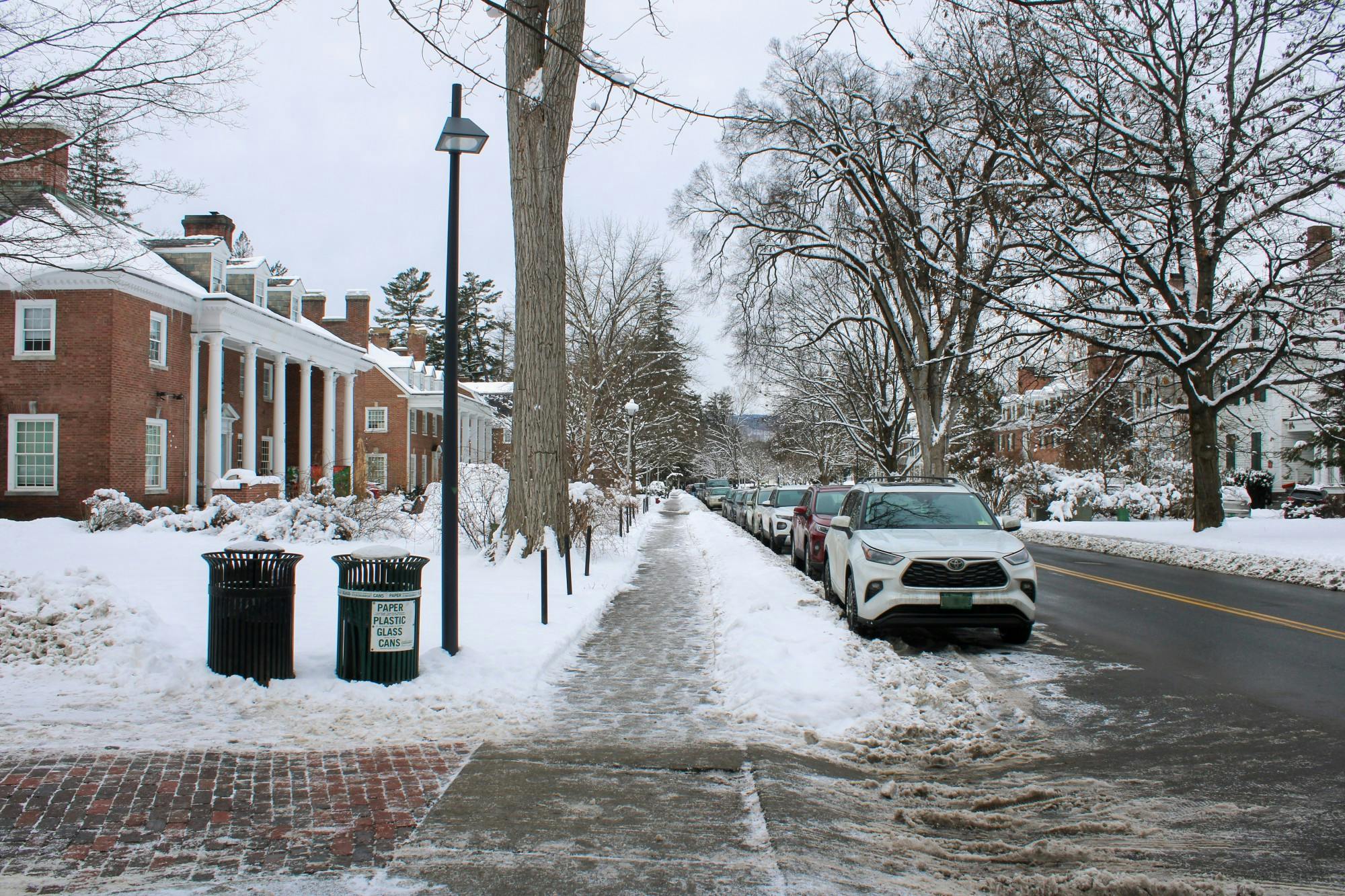Winter recruitment for Inter-Sorority Council chapters concluded with bids extended to 96 of 145 potential new members. The bids are up by 25 students compared to the 71 bids of 94 PNMs from last winter, ISC president Gerol Fang ’23 wrote in an email statement.
Kappa Pi Kappa was the only Interfraternity Council house to recruit new members, according to a campus-wide email sent by the IFC on Jan. 10. The IFC recruitment process will conclude with the extension of bids at shakeout on Friday, Jan. 27.
Within the Gender-Inclusive Greek Council, Phi Tau extended three bids this term, according to president Bryden Wright ’23. Alpha Theta president Joshua Po ’23 wrote in an email statement that Alpha Theta participated in recruitment but declined to comment on how many new members the house accepted.
According to Fang, ISC winter recruitment had a 66.2% retention rate, compared to 64.3% in the fall and 76% last winter.
Maya Cole ’25 said she rushed this term and accepted a bid from Kappa Delta Epsilon sorority. Cole explained that ISC recruitment functions in three rounds: an introductory round where all potential new members visit every house, and then two rounds where the houses choose which PNMs they want to call back. On the final day, known as bid day, PNMs meet with their Rho Gamma, an existing sorority member serving as a recruitment counselor to PNMs, to receive their bid from whichever sorority extended them a membership offer, according to Cole.
“I was expecting to be a bit more nervous because in the fall conversations would be like three sisters talking to only you,” Cole said. “This round was mainly one sister or two sisters talking to you. I like one-on-one conversations because I feel like it's less intimidating that way.”
Lauren Kang ’25 said she participated in ISC rush this term and did not receive a bid. According to her, meeting with the existing members of ISC houses throughout the rounds felt “strange.”
“There were some weird experiences, especially when you were being interviewed with another PNM,” she said. “It was weird to see people interacting in that way for sure because people are not treated like people. You're being very judged and ranked — it's a little dehumanizing.”
Kang noted that her involvement in other communities around campus made joining a house feel less necessary for her.
“I think at Spare Rib, and a lot of the other things that I'm involved in on campus, I feel like I have a good social life,” she said. “I don't go out that often, so I didn't really need a place for that either. I don't think that it was something that I was missing that I needed.”
According to Cole, the process can be challenging due to its demands on time combined with pressure in the decision-making process for PNMs.
“It's a really big time commitment, especially round one because you have to go to eight events and each event is like 50 minutes. So you know it's a big commitment for the sisters and the people rushing,” she said. “Also, it was really hard deciding what house that you like the best… you can be happy at [a range of] houses, so it's kind of hard to decide where you want to go.”
Significantly fewer PNMs rushed this term than in the fall, when 462 PNMs registered for recruitment. Similarly, Phi Tau saw three new members join its house this term so far, compared to nine last term, according to Wright.
Phi Tau’s recruitment process is ongoing, as the house extends bids throughout the term.
“There are a lot of different ways into the house,” Wright said. “It’s super open. I don't think you could really pick any one attribute that would define a Phi Tau other than being open and inclusive. We're really eclectic.”
PNMs sign the house’s rush book — and two meetings later, the siblings vote on whether or not to deliver a bid, according to Wright.
“After that, it's completely in their hands,” Wright said. “The bid is binding on our part, but it's not binding on their part at all. They get this small piece of paper and they can hold onto it forever if they want to … Or at any point they can return it to any sibling in the house and they'll have ‘sunk’ their bid, at which point they become a member.”
Since Wright joined in fall 2021, Phi Tau has gone from about 15 members to 32 members, he said. He expects there to be “somewhere from 35 to 40 members” by the end of this year as the house continues to grow.
“Generally, it's the case that whoever was in the house for a while will be the most enthusiastic,” Wright said. “Then the new siblings will slowly enter the fold and over time become super excited until they become the excited ones for the new generation. Now we're in this place where all of the older siblings are still very excited about everything, but somehow the new ones are surpassing us in that and it's a really great thing to see.”
Leadership from The Tabard, which is another house within the GIGC; Kappa Pi Kappa; and the presidents of all ISC houses: Alpha Phi, Alpha Xi Delta, Chi Delta, Epsilon Kappa Theta, Kappa Delta, KDE, Kappa Kappa Gamma and Sigma Delta did not respond to requests for comment on their recruitment process by press time.
The author of this piece, Jackie Wright ’26, is not related to Bryden Wright.
Correction appended (Jan. 28, 7:40 p.m.): A previous version of this article contained a spelling error in the title. The article has been updated.




